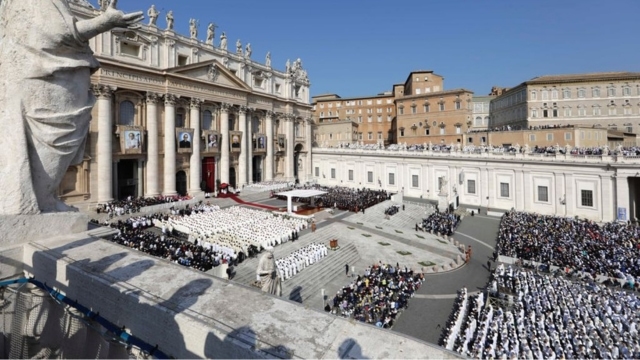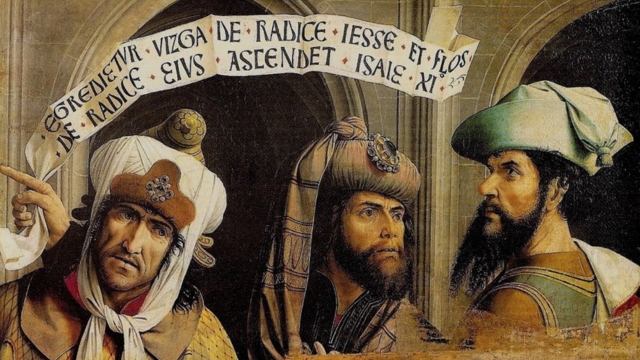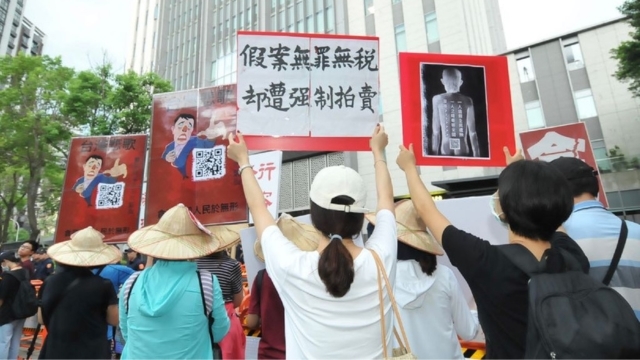The martyred archbishop reminded the world that prophecy means telling the truth on the basis of one’s “undisturbed conscience,” and that most prophets are persecuted.
by Massimo Introvigne*
*Conclusions of the webinar “Telling the Truth About Tai Ji Men and Other Victims of Abuse and Discrimination,” co-organized by CESNUR and Human Rights Without Frontiers on March 24, 2023, United Nations International Day for the Right to the Truth Concerning Gross Human Rights Violations and for the Dignity of Victims.

The International Day for the Right to the Truth Concerning Gross Human Rights Violations and for the Dignity of Victims is observed on March 24, as several speakers in this webinar have noted, to commemorate the assassination of the Catholic Archbishop of San Salvador, Óscar Arnulfo Romero, on March 24, 1980.
Romero pronounced one of his most famous homilies on September 10, 1978. This homily is remembered because of the stand he took on the Marxist turn of the Sandinista movement in Nicaragua, led by Daniel Ortega.
Since Ortega is still in power in Nicaragua today, and is guilty himself of gross human rights violations and a brutal repression of religious liberty, it is worth remembering that Romero, while denouncing the brutality of right-wing authoritarian regimes, did warn against the danger of Nicaraguan Marxism. In the homily, Romero characterized the possibility of a Communist regime in nearby Nicaragua as “a threat we cannot ignore… the danger in Nicaragua is great.” “We are anti-Marxists, he said, by reason of our Gospel principles.”
On the other hand, Romero did not believe that anti-Communism, which he regarded as entirely legitimate, might justify human rights violations and injustice by regimes that claimed to be against Marxism. “The best anti-Marxism is a more just society,” he said.
In the same homily, Romero stated that the Catholic Church “supports, applauds, and encourages whatever is good; she consoles the victims of assaults and injustice; and she also denounces the atrocities, the disappearances, the tortures, and the social injustice.” In other words, Romero’s Catholic position asked for the truth about the atrocities and injustices perpetrated by the military regime in El Salvador—which eventually got him killed.
Romero’s position was rooted in an important theological principle, prophecy. He insisted that women and men of God have a prophetic role.
There is a common misunderstanding about the word “prophecy.” In common language today, a prophet is somebody who is able to predict the future. Like many other words of our language, “prophet” is the English transliteration of a Greek word, “prophétes.” “Phétes” in Greek is one who speaks. “Pro” means “before,” but, just as it happens in English, “before” in Greek has two different meanings.
I may tell you the result of the next soccer game before it is played, and in this case I am a prophet in the sense that “I speak before the event.” But I can simply speak “before” an audience, in the sense of “in front of” it, which is another meaning of both the Greek “pro” and the English “before.”

Accordingly, a “prophet” can be somebody who “speaks before the event,” i.e., predicts the future, but can also be somebody who “speaks before the people,” i.e., proclaims the truth openly, boldly, and in front of everybody.
In his 1978 homily, Romero made precisely the point that in the Jewish and Christian traditions (in fact, even in the Islamic one), although some prophets did make predictions about the future, many did not. They were prophets not because they had a special gift of predicting the future but because they had the bravery of telling the truth to the crowds, which the Bible (and the Quran) regard as more important than making predictions about the future. Often prophets told unpleasant truths and ended up being killed, something Romero prophetically—the word here is very much appropriate—reminded his audience of, less than two years before being assassinated himself.
While predicting the future is a rare gift, testifying for the truth is a duty for every woman and man of conscience. The Archbishop mentioned that his opponents called him “Romero the prophet” to ridicule him, and answered: “When some people scornfully say that I think I’m a prophet, I respond, ‘God be praised! You also must become one! Every Christian, the whole of God’s people, every family must develop a prophetic sense…’”
A prophet, Romero added, is one who has an “undisturbed conscience.” This is an interesting statement. Only those who are firmly rooted in conscience as their moral compass may calmly tell the truth about injustice and corruption, no matter the risks. And risks there are since prophets easily make enemies. As Romero noted, most prophets were persecuted, and many were killed.

This is also the story of Tai Ji Men’s Shifu (Grand Master) and dizi. They are prophetic voices, not in the sense that they predict the future, but in the more fundamental meaning of the word “prophet,” indicating those who proclaim the truth because they are firmly grounded in conscience.
Even if they do not generally predict the future, they may easily make one prediction, that their “undisturbed conscience” will very much disturb corrupt politicians and bureaucrats, who will in turn disturb the prophets by persecuting them.
We are here today to stop the persecution. As this webinar has proved, the first step when trying to stop an injustice is telling the truth about it. We have just started telling the truth about the Tai Ji Men case. We should continue in this genuinely prophetic endeavor.
Source: Bitter Winter

